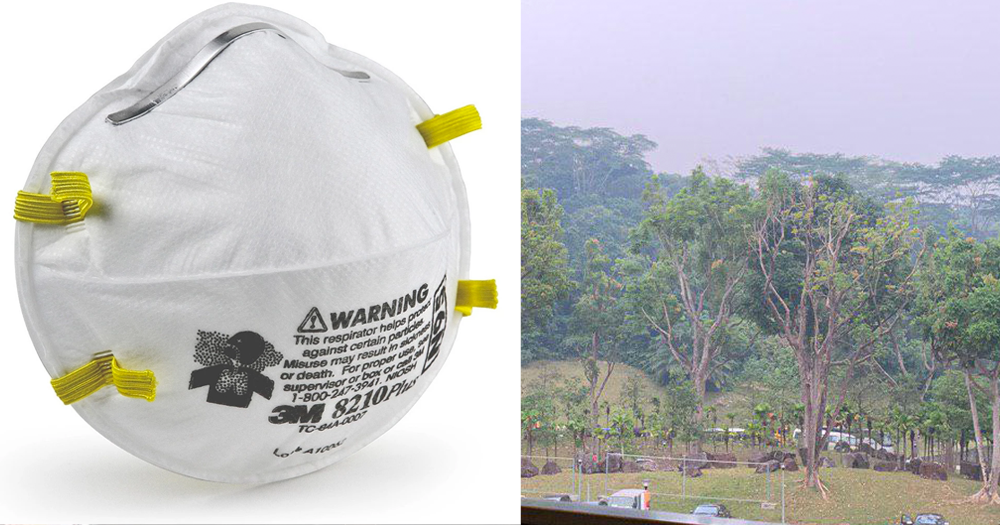The haze is back in Singapore with a vengeance, with the 24-hour Pollutant Standards Index (PSI) having tipped towards the Unhealthy range on the evening of Sep. 14.
N95 masks in high demand
As of 4pm on Sep. 17, the PSI levels reached 102, within the Unhealthy range, in the north and south regions of Singapore.
The Straits Times reported that N95 masks were sold out in some healthcare stores, though the Ministry of Health (MOH) has since reaffirmed that more stocks will be made available progressively, and that there are sufficient stocks in warehouses and government stockpiles.
Do I really need a mask?
According to Health Hub by the Health Promotion Board, an N95 mask may be used by someone who has to be outdoors for several hours when the PSI is more than 300.
N95 masks are not needed when someone is only exposed to the outdoors for a short time, such as commuting to and fro home, school or work.
N95 masks are also not needed in an indoor environment.
According to the Ministry of Manpower's website, when the PSI reaches unhealthy levels of 101-200, mitigating measures should be taken, such as using mechanical aids for heavy lifting or transporting, indoor rest breaks and ensuring employees have adequate hydration.
Healthy employees should reduce prolonged or strenuous outdoor work, while pregnant and elderly employees should minimise such work.
Those with chronic lung and heart disease should avoid such work completely.
If the 24-hour PSI reaches levels of 201 to 300, the employer is strongly urged to provide masks to their employees if they are required to carry out outdoor work.
Normal surgical masks have no protection against the haze
In a haze health advisory, the Ministry of Health said that normal surgical masks are not effective in filtering fine particles even though they may reduce discomfort caused by the haze by providing a barrier between larger irritant particles and the person.
Of course, if you're sick and coughing and/or sneezing, putting on a surgical mask will help prevent your infected droplets from travelling through the air and making others sick.
It will also prevent you from inhaling harmful germs from others.
Another type of mask, the AIR+ Smart Masks are certified to be safe for use in adults, but there are no such certification standards which apply to the use of the masks on children.
When buying an N95 mask, one can look out for the NIOSH-certified N95 masks or the EN-149 mask, and should perform a fit check to ensure that it fits well.
A NIOSH-approved mask is certified by the US National Institute for Occupational Safety and Health (NIOSH) to have 95 per cent filter efficiency.
However, the use of N95 masks may cause discomfort, tiredness or headaches, as there is an increased resistance to breathing and a reduction in the volume of air being breathed in.
Pregnant women, the elderly and people with severe lung or heart problems who have difficulty breathing when at rest or during exertion should consult a doctor before using an N95 mask.
The key precaution for children and adults remains that of minimising prolonged or strenuous outdoor physical exertion when the air quality reaches unhealthy levels, i.e. a 24-hr PSI level of more than 100.
Outdoor activity should be avoided once the 24-hr PSI exceeds 300.
Top image via Safety Solutions' website and Rachel Ng .
If you like what you read, follow us on Facebook, Instagram, Twitter and Telegram to get the latest updates.
